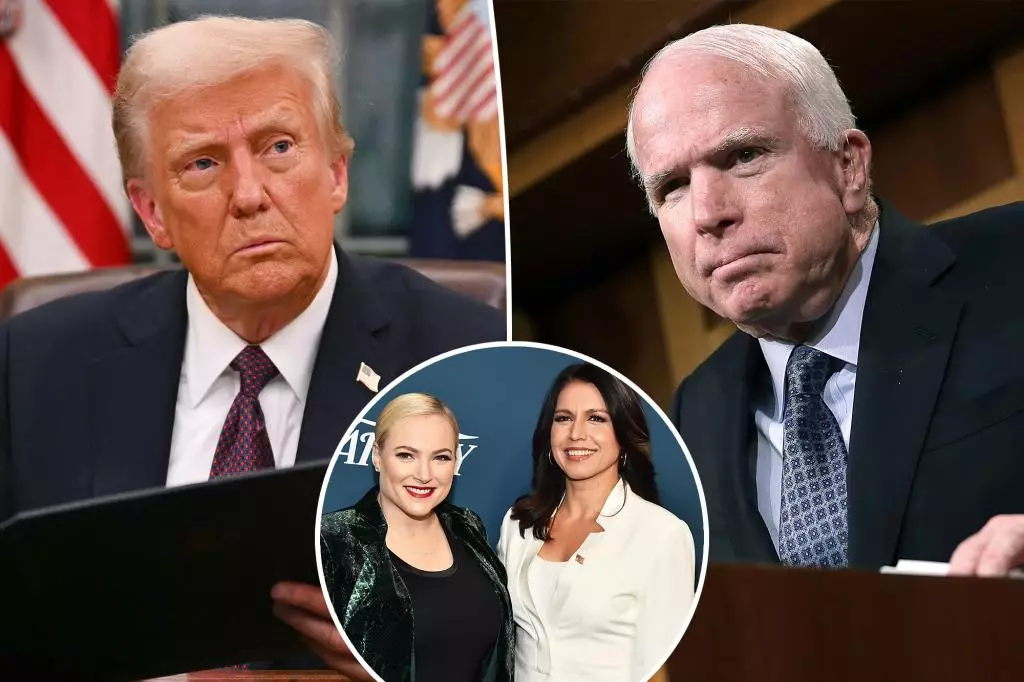The hostility between Donald Trump and John McCain dates back to 2015, igniting public attention with Trump’s dismissive remark regarding McCain’s status as a former prisoner of war. The phrase, “I like people who weren’t captured,” set the tone for a fierce and protracted rivalry that extended beyond mere political disagreements. Following McCain’s passing in 2018, he was notably absent from the funeral, a decision that escalated tensions further. Trump lamented the lack of acknowledgment for his presence during the senator’s state funeral, which highlighted not just personal grievances but also the deep divides within American political culture.
The fallout from Trump’s comments sparked a strong defense from McCain’s family, particularly from his daughter, Meghan McCain. Her fierce condemnation of Trump was not just a personal affront but a broader critique of his values and approach to leadership. Labeling him an “election-denying huckster” exemplified the deep-seated animosity that characterized this feud. The grief of losing her father was compounded by Trump’s perceived insensitivity, reflecting a familial loyalty that resonated with many Americans who admired McCain for his service and sacrifice.
Cindy McCain also expressed the emotional toll the feud took on her, sharing her uncertainty about moving past the hurtful public jabs. The public’s fascination with this conflict was fueled by the emotional weight it carried; it became symbolic of the deteriorating civility in political discourse.
Fast forward to recent developments: an unusual reconciliation appears to be taking shape, one bolstered by Meghan’s support for Tulsi Gabbard’s appointment as the Director of National Intelligence. Gabbard, a political figure with complex ties, emerged as a pivotal player in mending this strained relationship. Meghan’s efforts to build bipartisan support for Gabbard included engaging directly with senators and using various platforms to advocate for her friend.
This shift may signify a broader trend in reaching across political divides, even amidst lingering animosities. The unexpected collaboration resulted in tangible recognition from the White House, which reportedly expressed gratitude towards Meghan for her role in garnering support for Gabbard. Such gestures suggest a willingness to forge new alliances, albeit somewhat reluctantly.
Despite the bitter past, the recognition of Meghan McCain’s contributions—culminating in an invitation to Gabbard’s swearing-in and a personal thank-you from Trump—marks a significant turning point. It illustrates that, in the world of politics, even the most profound disagreements can give way to cooperation, especially when personal connections and shared interests are involved.
This evolving dynamic serves as a reminder that the political landscape is constantly shifting. While the specter of past animosities looms large, the potential for new alliances presents a glimmer of hope in a polarized environment. As political figures like Meghan McCain step into roles that defy traditional norms, there is an opportunity for healing and progress, even where there once were wounds.

